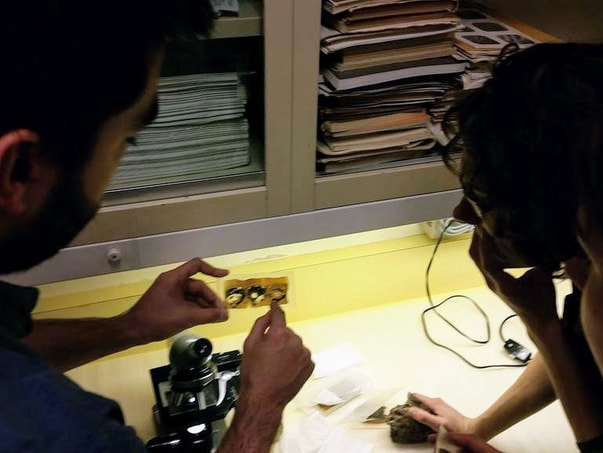Teaching, Mentorship, and Workshops
University Teaching
I began my work in university-level teaching as a teaching assistant in my 3rd year of undergraduate, continued to do so throughout my M.Sc. and Ph.D. programs, and have since worked as an instructor of record for several courses. I have taught a variety of subjects, most of which have emphasized experiential learning through hands-on lab or field based exercises. In addition to teaching, many of these courses involved the re-design of lab and lecture content. Courses taught include those focused on palaeontology, ecology and evolution, geology and stratigraphy, zoology and biodiversity, field methods and mapping, and natural history.
Student Mentorship & Supervision
I am currently supervising multiple graduate students as primary supervisor, and am currently serving (and have previously served) on the advisory committees of students at several institutions. During my time as a postdoc and graduate student, I acted as supervisor for multiple undergraduate honours projects, and also supervised summer interns, volunteers. The majority of these supervised research projects have been published in peer-reviewed journals with students as lead or co-authors, or are in the process of being prepared for publication. I am also a peer-mentor through the Multi-Institution Paleosciences Peer Mentor Program (PPMP).
Workshop Organization & Implementation
|
Since my time as a graduate student, I have assisted in the organization and implementation of multiple technical workshops focused on particular analytical and laboratory methods.
Chief among these was my role in an annual workshops at the Royal Ontario Museum which focused on the theory, data interpretation, and hands-on procedures associated with palaeohistology, wherein I taught both lectures and practical components. Additional workshops that I have led or assisted with include those on morphometrics, multivariate statistics, and isotopic analyses. |
Museum-based Teaching Content
Since starting my postdoc at the Field Museum in January 2018, I have been asked to advise on the development of content for multiple Education department projects. These include:
- an educational video game co-produced by the Field Museum and Filament Games called ‘Mission to the Mesozoic”. Project is designed to provide an understanding of biodiversity in deep-time, how to identify different species and clades, how environments have changed throughout the Mesozoic, and how climate change relates to macroevolution and extinction. Project will be made for use both within the Field Museum, in regional schools, and online (https://www.fieldmuseum.org/educators/resources/mission-mesozoic)
- material for lesson plans related to ‘Sauropod Evolution’, ‘Dino Boxes’, and ‘Dinosaur Family Tree’ modules
